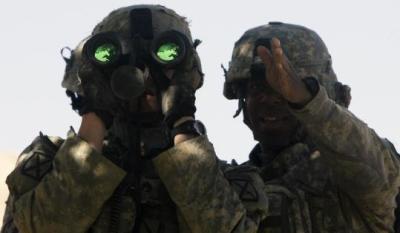If I were only treated for PTSD, I might be dead

As a combat veteran who deployed and fought in Iraq and Afghanistan, I know firsthand about war's long-lasting effects. The horrors of combat follow us home, haunt our nights and cast shadows over our days. The weight of our experiences can be overwhelming, and for some, it becomes too much to bear.
Every day, 22 veterans make the heartbreaking decision to end their lives.
Many experts claim Post-Traumatic Stress Disorder (PTSD) is killing our troops. But based on my personal and professional experience, PTSD is not the sole cause of the veteran suicide epidemic; it is just one of several factors that lead veterans to make that fatal, final decision.
To truly support our veterans and active-duty military, we must recognize that resilience after combat is multifaceted. True treatment involves addressing the whole person — mind, body, and soul. A comprehensive program combines psychological, physical, cognitive, spiritual, and social care. We cannot isolate these components; they are interconnected, each factor playing a crucial role in fostering hope and healing.
Many good-hearted and well-intentioned ministries, organizations and medical professionals focus on the wrong issue and therefore focus on an erroneous solution. Clinicians try to treat PTSD with medication and talk therapy. While these options are useful tools, they are not necessarily the only, or best, solutions.
I know this phenomenon because I experienced it.
In 2010, I returned home from the Korengal Valley in Afghanistan. Seven days of heavy combat theater, one of the most dangerous places on Earth, changed me in ways I never imagined. I left for deployment with rose-colored glasses and returned with a warped world view. I justified my actions by telling myself the kills were righteous — made in the name of freedom, democracy and American values. And perhaps that’s true, but there is still blood on my hands.
Soldiers are trained to handle pressure and persevere on the battlefield. We endure the hardships and win the war. However, the stress and trauma build up over months and years of deployment. Warriors rarely break on the battlefield. We press on. It's when we try to return to civilian life that the aftermath of war surfaces and our loved ones begin to suffer the effects that war had on us.
After the first 10 years of my 20 years of service, multiple deployments, and numerous conflicts and explosions, I suffered from traumatic brain injuries and PTSD. The obsessive-compulsive thoughts, the anxiety, the insomnia, and the uncontrollable bouts of anger were difficult to manage. More so, the headaches, chronic pain, blurry vision, mood swings, tinnitus, and loss of memory felt like my brain was on fire which brought me to a place of dark hopelessness. I was on the verge of losing my marriage and career. I hated who I had become, and I despised my life. More than once, I wondered if it was even worth it.
I was sent to a physician, given medication and told to talk it out. But that didn’t work. When my treatment shifted to more holistic care, including cognitive therapy to address my concussion and Christian counseling to address my existentialist crisis, my healing journey began.
If I were only treated for PTSD, I might be dead.
PTSD affects an estimated one in seven adults at some time in their lives, significantly impacting military service members and veterans. According to the National Institute of Mental Health (NIMH), PTSD is a severe condition that arises from experiencing or witnessing traumatic events. Veterans are particularly vulnerable to this disorder, due to their exposure to war zone deployment, training accidents and military sexual trauma.
Research indicates that deployment increases the risk of PTSD, with some studies showing it to be three times more likely among deployed veterans compared to non-deployed veterans.
Since 2011, over 2.8 million men and women have been deployed to Iraq and Afghanistan in the fight against terrorism. The scars of war run deep, affecting not only our psychological well-being but also our physical, cognitive, social and spiritual health. When we return to civilian life, many of us feel lost, disconnected and purposeless.
Grief and guilt compound and stress levels mount, leading to insomnia. Chronic pain issues drive opioid addiction. Destructive lifestyle habits develop, like poor diet, substance abuse and decreased physical activity.
When someone experiences trauma, it affects them on multiple levels. Psychologically, PTSD can lead to more pronounced cognitive dysfunction, often manifesting as nightmares, flashbacks and emotional turmoil. Cognitively, traumatic brain injuries disrupt memory and cognitive function. And spiritually, there’s something deeper — the moral injury.
Moral injury is a blunt trauma to the soul, with many symptoms requiring a thorough understanding so treatment can be correctly guided and implemented. Ideally, recognizing moral injury promotes resiliency and is part of the holistic health model.
Together, we can honor the sacrifice of our nation's warriors by ensuring they find peace beyond the battlefield by building resiliency through effective treatment that focuses on the mind, body and soul. This paradigm is how we can stop the suicide epidemic and save our American heroes.
Dr. Damon Friedman, a decorated veteran of combat in Iraq and Afghanistan, retired from the Air Force as a lieutenant colonel in special operations. He is the founder of SOF Missions, which treats veterans with psychological, cognitive, physical, social and spiritual care.




















